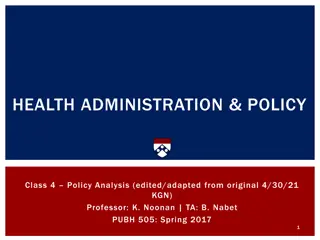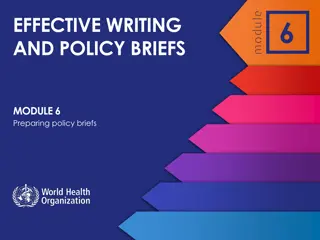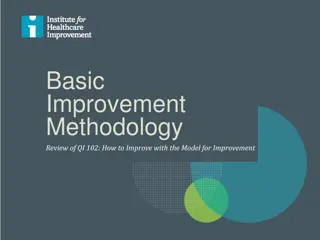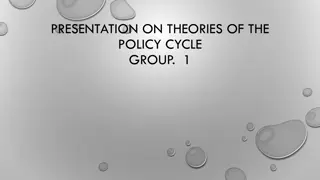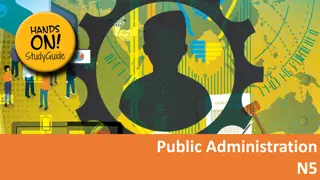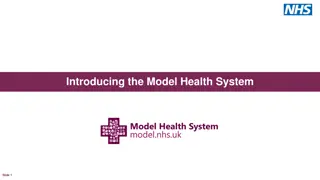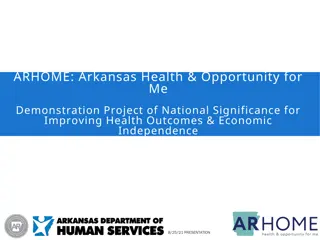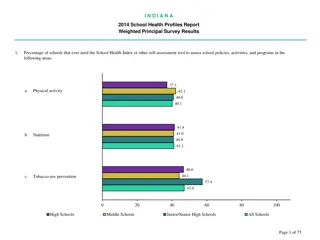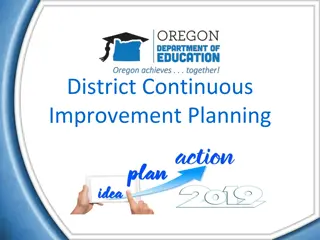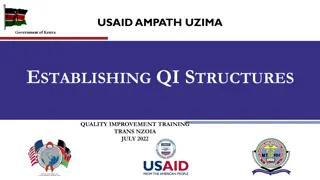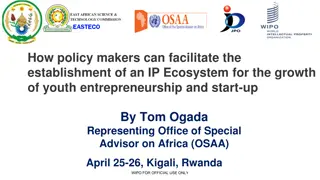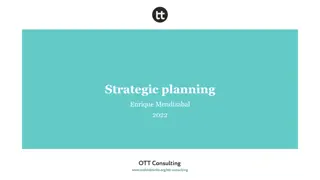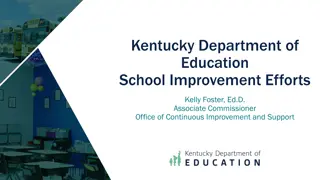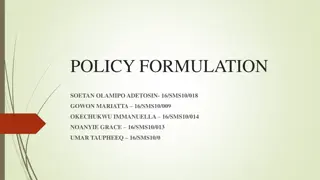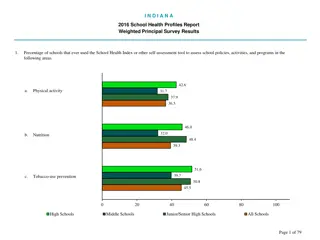Understanding Policy-Making Process for Health Improvement
Policy-making involves defining policy, recognizing its complex nature, identifying windows of opportunity, and framing health issues. The policy-making cycle includes stages like agenda setting, formulation, and implementation. Alignment of problems, policies, and politics is crucial for effective health policies. The problem stream in policy processes involves recognizing public matters needing attention and framing the issues for policy action.
Download Presentation

Please find below an Image/Link to download the presentation.
The content on the website is provided AS IS for your information and personal use only. It may not be sold, licensed, or shared on other websites without obtaining consent from the author. Download presentation by click this link. If you encounter any issues during the download, it is possible that the publisher has removed the file from their server.
E N D
Presentation Transcript
POLICY-MAKING AND HiAP 4 MODULE 4 PART 2 The policy-making process
LEARNING OBJECTIVES 4 1 Define policy and describe the stages of the policy-making cycle 2 Recognize the complex and political nature of the policy-making process Identify the characteristics of a window of opportunity for policy change 3 4 Frame a complex health issue and identify its policy challenges and opportunities
WHAT IS POLICY? 4 A policy is a principle or a plan to guide decisions, actions and outcomes. Policies can be laws, documents, procedures, guiding principles, statements of intent or working frameworks. Public policy refers to the policy of government. There can often be large (sometimes deliberate) discrepancy between policy as intent (what is planned, stated or written) and policy as practice (what actually happens).
THE POLICY-MAKING CYCLE 4 POLICY REVIEW AGENDA SETTING Report Identify problem Evaluate Research Monitor Set agenda IMPLEMENTATION FORMULATION Enforce policy Develop options and strategies Implement policy Negotiate Formulate policy Stages of the policy cycle (Source: modified from http://www.geostrategies.com/images/policycycle.jpg)
4 WINDOWS OF OPPORTUNITY PROBLEMS POLICIES POLITICS Alignment of problems, policies and politics allows health to come through Alignment of problems, policies and politics in creating windows of opportunity Source: Leppo K et al. (2013) Health in All Policies:Seizing Opportunities, Implementing Policies. Finland, Ministry of Social Affairs and Health, p. 16.
POLICY PROCESS: THE PROBLEM STREAM 4 Regards public matters requiring attention. An issue needs to be recognized as a problem Ad hoc basis through events such as disasters, accidents or crises and media attention More deliberate or planned avenues research results, worrying changes in a situation, failures to meet previous goals, rising costs. Opportunities may arise from policy development within other sectors Health policy-makers should identify such gateways for action. Not all problems are given attention to by the decision-makers.
4 FRAMING THE PROBLEM Recognition of a problem can also be thought of as the agenda-setting stage of the policy cycle. The process of setting the agenda or getting a problem recognized is all about framing. Framing refers to how an issue is defined influences how the issue is viewed who is considered responsible the cause of the problem and possible solutions. Redefining or reframing the problem allows for new ways of understanding. This can encourage new stakeholders to engage in the policy process.
POLICY PROCESS: THE POLICIES STREAM 4 The policy stream regards proposals for change policies . These provide alternative solutions for the problems and are developed by policy communities. To achieve success these policies should be Technically sound Culturally and ethically acceptable Financially reasonable. The search for solutions is the policy formulation stage of the policy cycle.
POLICY PROCESS: THE POLITICS STREAM 4 The politics stream is composed of political issues E.g. election results, changes of administration, interest group campaigns or changes in public opinions. A policy change is possible only if the politics environment is right. Policy-makers need to be able to recognize appropriate moments in politics when a policy change would be most likely adopted. The negotiation of politics is part of both the policy formulation and policy implementation stages of the policy cycle.
SEIZING WINDOWS OF OPPORTUNITY 4 TIME STARTING POINT WINDOW OPEN WINDOW CLOSED DRAWBACKS WINDOW OPEN MISSED OPPORTUNITY WINDOW CLOSED LONG-TERM HEALTH POLICY GOAL Windows of opportunity in policy formulation and implementation Source: Leppo K et al. (2013) Health in All Policies: Seizing Opportunities, Implementing Policies. Finland, Ministry of Social Affairs and Health, p. 19.
POLICY CHAMPIONS / POLICY ENTREPRENEURS 4 In the context of windows of opportunity and the complex, political nature of policy-making, Kingdon emphasizes the importance of policy champions. Policy champion: a person or team willing and able to lead and manage the policy process. Kingdon attributes policy entrepreneurs some vital resources: Claim to a hearing possesses expertise Negotiating skills political know-how Sheer persistence.
End of Module 4 Part 2 Please continue to Module 5 Part 1



